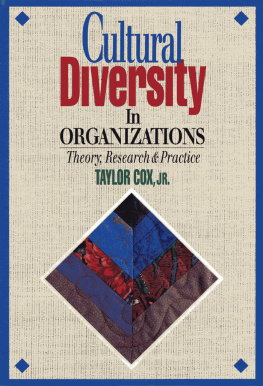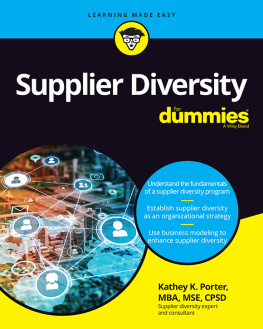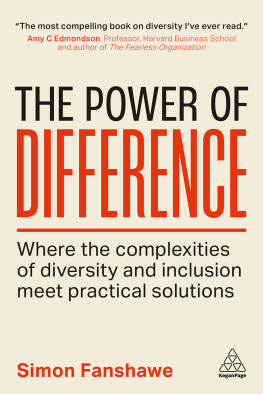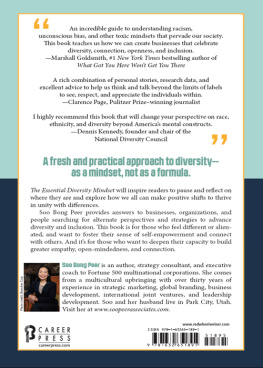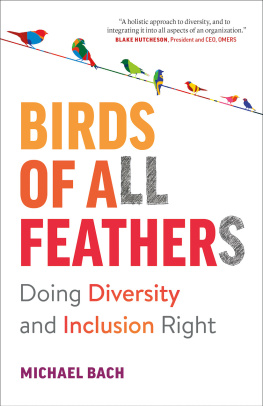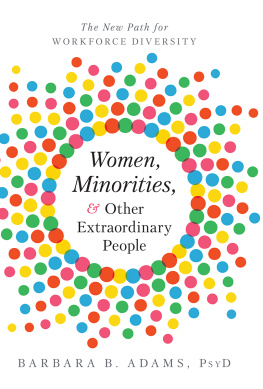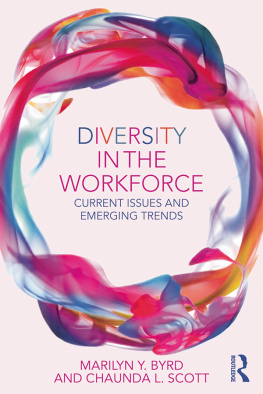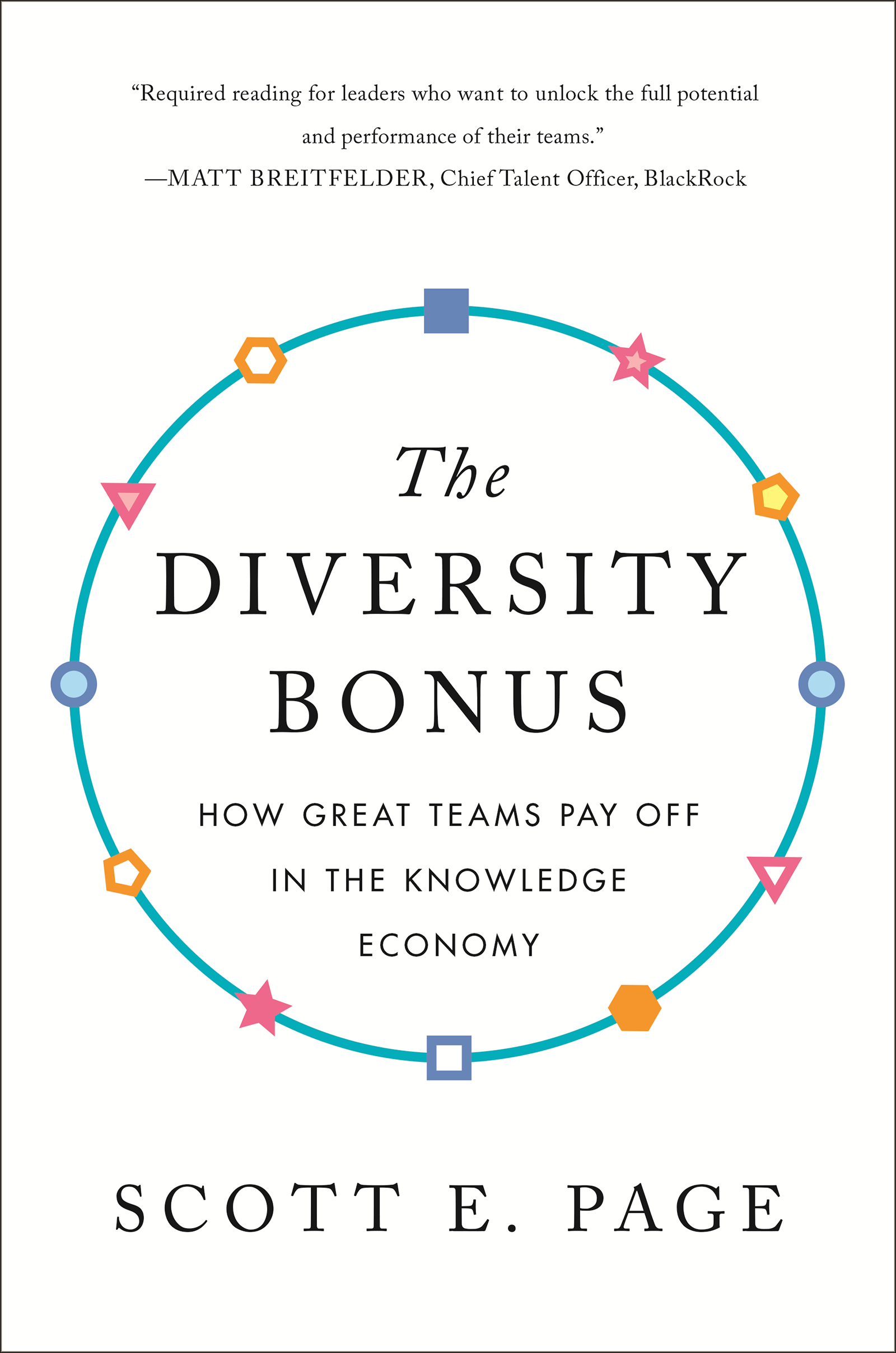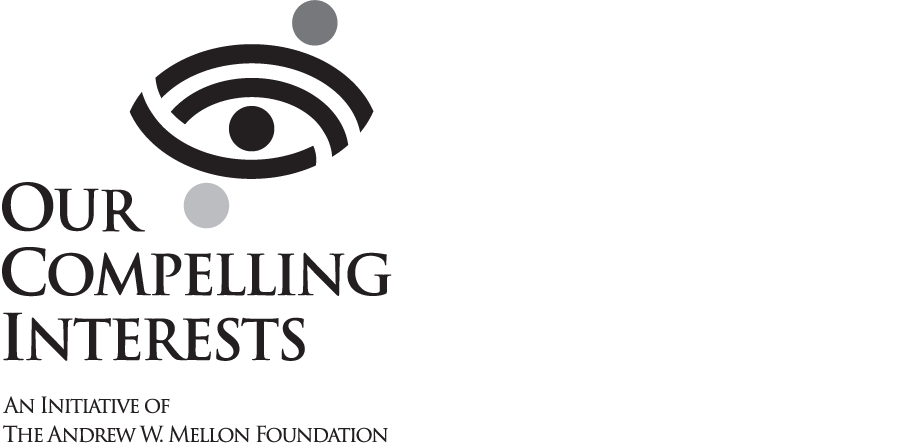
E ARL L EWIS AND N ANCY C ANTOR , S ERIES E DITORS
Other books in this series:
Earl Lewis and Nancy Cantor, editors, Our Compelling Interests: The Value of Diversity for Democracy and a Prosperous Society
DIVERSITY
BONUS
HOW GREAT TEAMS PAY OFF IN THE KNOWLEDGE ECONOMY
SCOTT E.PAGE
PRINCETON UNIVERSITY PRESS PRINCETON & OXFORD
Copyright 2017 by Princeton University Press and The Andrew W. Mellon Foundation
Requests for permission to reproduce material from this work should be sent to Permissions, Princeton University Press
Published by Princeton University Press, 41 William Street, Princeton, New Jersey 08540
In the United Kingdom: Princeton University Press, 6 Oxford Street, Woodstock, Oxfordshire OX20 1TR
press.princeton.edu
Cover design by Karl Spurzem
All Rights Reserved
First paperback printing, 2019
Paperback ISBN 978-0-691-19153-9
Cloth ISBN 978-0-691-17688-8
eISBN 978-0-691-19382-3
Library of Congress Control Number: 2017938361
British Library Cataloging-in-Publication Data is available
To Pat Gurin, for helping so many of us think in deeper, more complex ways.
Great ideas push the world forward. And they can come from anywhere. At Apple, we rely on our employees diverse backgrounds and perspectives to spark innovation. So were hiring more inclusively, choosing partners who make diversity a priority, and creating opportunities for the next generation.
APPLE
We should understand that diversity and inclusion are not something nice to do in addition to our real work, but are central to mission success.
CHARLES F. BOLDEN JR., NASA ADMINISTRATOR
Encouraging a broad range of opinions, ideas and perspectives helps us drive creativity and innovation across the company.
THE WALT DISNEY COMPANY
The issues we face demand sustained effort and insight from a broad array of people, who bring a variety of perspectives, backgrounds, knowledge, and experiences to the challenge.
ROBERT WOOD JOHNSON FOUNDATION
Our diversity makes us a better company, a stronger company, by bringing in fresh ideas, perspectives, experiences, and life responsibilities, and by fostering a truly collaborative workplace.
FORD MOTOR COMPANY
At Dartmouth, differences are embraced and ideas are challenged. Our diverse community of students, faculty, and staff come together to share perspectives, learn, and grow.
DARTMOUTH COLLEGE
The FDIC recognizes that its strength comes from the dedication, experience, talents, and perspectives of every employee.
FEDERAL DEPOSIT INSURANCE CORPORATION
CONTENTS
Earl Lewis and Nancy Cantor |
Katherine W. Phillips |
INTRODUCTION
EARL LEWIS AND NANCY CANTOR
R ecently audiences flocked in record numbers to watch Hidden Figures , which told the uplifting story of three brilliant African American women who played indispensable but largely unknown roles at NASA in the iconic American success story of John Glenns launch into orbit and the Apollo missions that followed. These women, products of the segregated South, made lasting contributions to the nations space program in spite of social strictures that initially limited their inclusion. Their achievements improved the work of NASAs teams of scientists, enriched the space program as a whole, and helped accomplish the national goal of putting a man on the moon. For the team tackling a complex problem, their cognitive skills, grit, determination, and drive proved a plus.
Hollywoods dramatization of a moment of exclusion that begrudgingly transitioned to a moment of inclusion is set against the backdrop of unfolding social and political practices. Recall that segregation was birthed in the late nineteenth century, matured into a hardened system through the middle of the twentieth century, and ended formally in the latter quarter of that century. It didnt end voluntarily, naturally, or completely on its own. It ended because women, men, and children organized, agitated, and fought to end it. The women profiled in the film were agents in the forging of change.
DIVERSITY AND INCLUSION: CONTESTED OR VALUED?
As we prepare this introduction, diversity and inclusion remain highly contested. Americans of all faiths, hues, and histories take to the streets and the airports to protest a hastily configured immigration ban that seems to target Muslims and deny access to the refuge and the opportunities that have defined this countrys core values for centuries. In London, a global city if ever there was one, marchers remind Prime Minister Theresa May that while a majority might have voted for Brexit, they wont tolerate sending their neighbors out of Britain or blocking others entrance into it. Back in the United States, Native Americans rightfully question the normalization of one version of history: Let me get this straight: Youre afraid of refugees coming to America, killing you, and taking your property?
At the same time, those who oppose the more restrictive rhetoric cannot ignore the fact that scores of others, in the United States, Great Britain, and across Europe, celebrate the us versus them viewpoint. Online, at family gatherings, and in the press, they fashion a worldview according to which it is better to exclude than to be victimized by those who are included. They are not all nationalists or on the political fringe; some simply question institutions they deem elite and out of touch with their realities. They seek to preserve advantages and look for ways to pass those advantages on to their children and relatives.
In the first volume in the Our Compelling Interests series, we informed readers that diversity and inclusion would not come easily, but a better understanding of what is to be derived from a fuller embrace would redound to the benefit of the broader society. Invariably the question turned to how. How would we make such a decision? How do we know that diversity and inclusion would benefit the common good? How do we imagine this working in the future? Sometimes the past provides a window into the future. During the height of the Cold War, we imagined that people of integrity and substance, once vetted, could and would enrich the United States. Then as now, we selectively let them enter the country and, once admitted, most became loving, devoted citizens. Along the way, their diverse backgrounds, intellectual powers, and honed skills helped us advance as a nation and people.
Emblematic is the story New York Times columnist Nicholas Kristof shares about his father, Wladislaw Krysztofowicz: A refugee who had repeatedly faced death in the Old Country for not belonging now somehow counted as American even before he had set foot on American soil, even before he had learned English. It But he wasnt, and, in fact, in 1952 the Oregon farming town that embraced him as one of theirs was bettered for welcoming new talent and new diversity to its community; in time it got to claim the favorite son that he fathered.
What stands at the core of the argument in this book series, Our Compelling Interests, is the proposition that diversity is to be valued; that welcoming, inclusive communities are strong communities. This is true even at a time when this country (and many others) looks more insular, xenophobic, and divided than it has in some time. This is true even when the dreams of so many different groups seem similarly at risk and the recovery from the Great Recession fails to reach evenly across America, evoking a cry for recognition in a hillbilly elegy, offering a stark reminder that black lives matter, and producing a searing look of insecurity on the faces of our student DREAMers. Alas, it is even true when the rise of nationalist movements around the globe, equating Islam with terrorism, scarily evoke Nazism and feed the extremism of the very groups we fear, Al Qaeda and ISIS.


